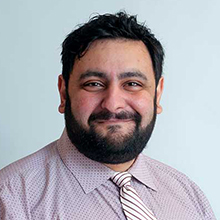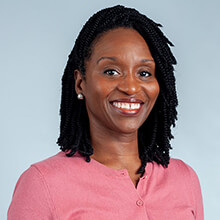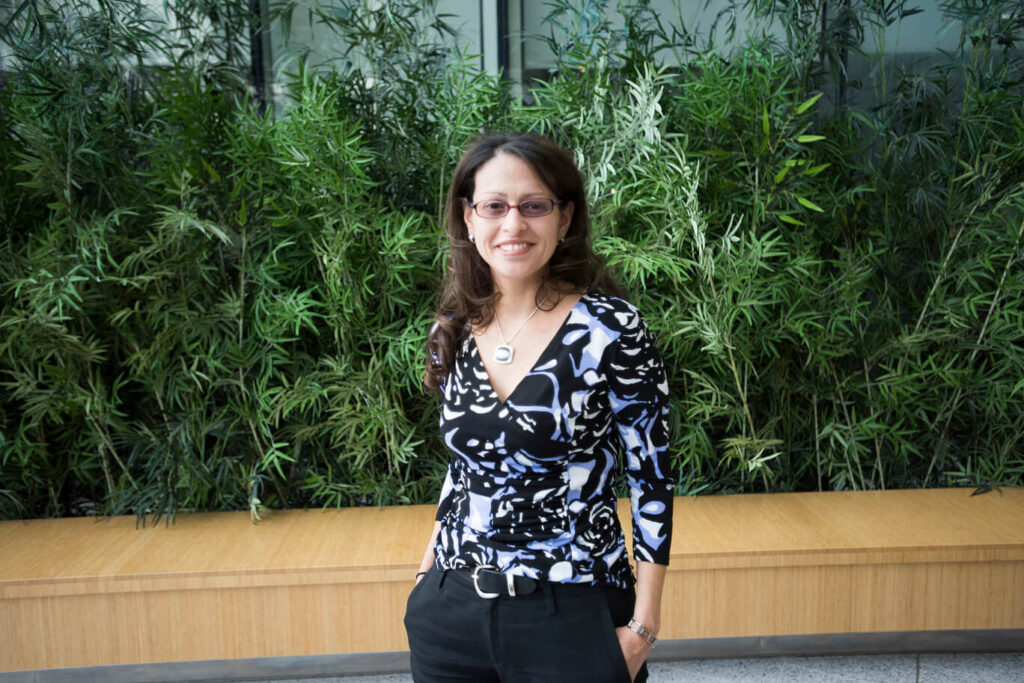Sickle cell disease (SCD) is the most common hereditary disease in the United States and is highly complex and historically challenging to treat. It manifests in different ways, but usually, it causes severe and frequent pain crises — periods of unbearable pain throughout the body that often require hospitalization and pain treatment to manage. And, although life expectancy for SCD patients has lengthened — some Massachusetts General Hospital patients are now living to the age of 60 — the average life expectancy nationally is still only 45 years old.
The disease impacts more people than cystic fibrosis — another genetic disorder that requires intermittent hospitalization — yet funding to advance the science is significantly less. As a result, treatment options remain limited.
A Mission Rooted in Equity
There are likely several reasons why the science for SCD is slow, but one of the main culprits is inherent bias and racism toward the patient population it affects. One out of every 365 Black or African American births are diagnosed with SCD and Hispanic American births are also at risk. The number is staggering, and one of the driving forces behind Mass General’s Comprehensive Sickle Cell Disease Treatment Center — an adult program for patients with SCD offering multidisciplinary care to both treat and prevent symptoms of the disease.
“We are the exemplar in our diversity, equity and inclusion work at the hospital. Among our team, we often say we work two jobs — one job is combatting systemic racism within the health care system and the other is actual medical and clinical care,” says Sharl Azar, MD, medical director of the Center and recent recipient of the Robert K. Kraft Endowed Chair in Diversity, Equity and Inclusion.

Painful Stigma
Many people living with SCD express feeling stigmatized while navigating the health care system. The unpredictable nature of the disease can require urgent care via Emergency Departments (EDs) where patients often feel perceived as “drug seeking” by medical staff. As a result, many patients avoid care and will experience a decline in health and quality of life.
“It’s a disease that primarily affects Black and Brown people,” says Sharon Amos, RN, BSN, one of two nurse navigators within the Center. “Due to the historical lack of funding and research for sickle cell disease, treatment options are limited. Intravenous [IV] pain medications are often used palliatively in an attempt to minimize the physical suffering SCD causes. The general lack of knowledge about the disease coupled with implicit bias towards people of color creates a negative perception that ultimately impacts the quality of care received. Part of our work is to advocate for this patient population and support our provider colleagues with the intention of raising awareness, as well as the standard of SCD care.”
One of the ways change is taking effect is the creation of a new Emergency Department Pathway — a treatment plan in a patient’s chart for emergency clinicians to follow when they see patients with SCD. “This acute care plan does much of the legwork,” says Dr. Azar. “It tells the ED how to manage their pain appropriately and ensures our patients are seen within 30 to 60 minutes.”

Addressing a Gap
A main purpose of the Comprehensive Sickle Cell Disease Treatment Center is to ensure there’s no gap in care as patients transition from pediatrics to adult care.
“I have been at Mass General for nearly three years, and prior to joining, there was no adult sickle cell program here,” says Dr. Azar. “There was a pediatric program at Mass General for Children (MGfC) but no place to transition patients as they became adults. I was brought on to build that program so we can continue offering the best care to our patients no matter their age.”
Since its inception in 2021, the program has grown from 24 to 207 patients and has established a clear path for the nearly 80 pediatric patients cared for at MGfC who will someday enter the adult program. The goal of the program is to “offer 360-degree wraparound services, akin to what has been provided nationally for hemophilia and cystic fibrosis, but that has long been unavailable for patients with SCD,” says Dr. Azar.
The Uniqueness of Nurse Navigators
Having nurse navigators as the centerpiece of the operation was a nonnegotiable parameter for Dr. Azar when building his plan. That’s why in addition to integrative therapy, primary care, patient navigation, palliative care, social work and athletic training, two dedicated nurse navigators, Ms. Amos and Ellen Silvius, RN, BSN, are embedded in the clinic as the main point persons for patients.
“Our purpose is to cultivate relationships with our patients,” says Ms. Silvius. “We’re a liaison between advanced-practice providers and attendings, and we provide another layer of personal connection. Patients text us directly, for example, so they can get to us quickly. It helps with the overall care journey and helps avoid ED visits and hospitalizations.”
Nurses are known in the medical world to be the foundation of health care, often functioning as the key source of information and interaction for a patient. Ms. Amos and Ms. Silvius have also taken on the role of educators who inform and work with clinical colleagues, so everyone feels supported when caring for SCD patients.
“The communication between our patients and their myriad caregivers has improved greatly because of the work we have done with other teams. You can see how it’s elevated morale among staff,” says Ms. Silvius. “Patients feel valued and confident in their care, and, as a result, providers do, as well.”

The Center’s Future
Philanthropy plays a key role in the everyday operations of the Center. Many of the positions — especially those not regularly covered by health insurance such as integrative therapy and athletic training — are supported through philanthropy. As the program continues to grow, Dr. Azar sees a future where pediatric SCD services across Boston interface more regularly with adult programs, further improving the transition from pediatric to adult care.
“We work well with our pediatric colleagues across the city, but I would love to begin implementing what we already do with MGfC — meeting patients when they’re as young as 16,” says Dr. Azar. “When we meet a couple years before patients move into adulthood, we can guarantee a safer transition for them, and we’ll be better prepared to accommodate their care needs.”
The demand for inclusive, wraparound sickle cell disease care will always endure due to Boston’s diversity — nearly half of its population identify as Black, African American, Hispanic or Latino. Mass General’s Comprehensive Sickle Cell Disease Treatment Center plans to remain on the forefront, working with other centers across the city to increase advocacy and improve treatment and prevention.
To learn more about the Comprehensive Sickle Cell Disease Treatment Center, please contact us.






